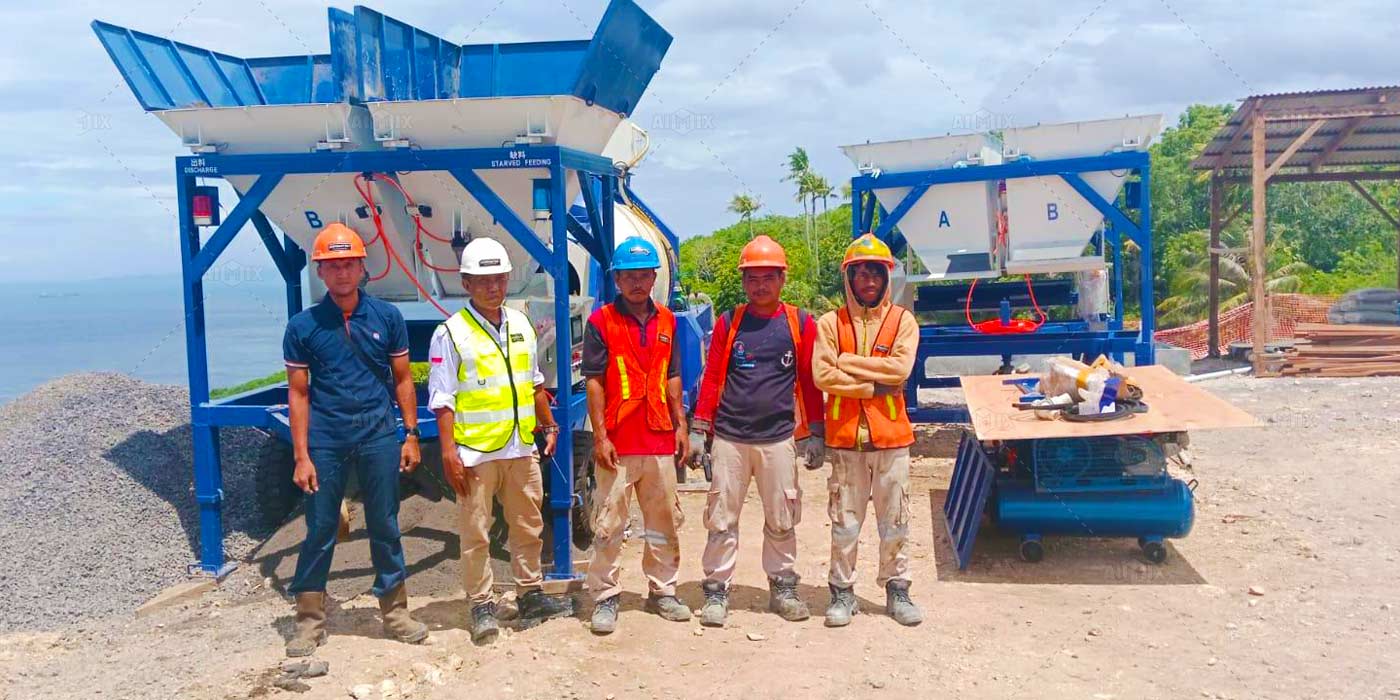Diesel or Electric Concrete Mixer with Pump
When selecting a concrete mixer pump, one key decision is whether to choose a diesel or electric concrete mixer with pump. Each type has advantages and is suitable for different project conditions. Understanding these differences can help you make the best choice for your construction needs.
Contents |
[edit] Comparing Diesel and Electric Concrete Mixers with Pumps
To decide which is better for your project, you need to compare the two based on critical factors such as power supply, mobility, efficiency, and cost.
[edit] 1. Power Supply and Availability
Diesel concrete mixer with pump does not require an external power source. They are ideal for remote construction sites where electricity is limited or unavailable. In contrast, electric mixers depend on a stable power supply, making them suitable for urban projects with reliable electricity.
[edit] 2. Mobility and Flexibility
Diesel-powered mixers are more mobile since they are not restricted by power cords. They can be used in various locations without worrying about access to electricity. Electric mixers, on the other hand, need to be connected to a power source, which can limit their movement on-site.
[edit] 3. Efficiency and Performance
Both types of mixers offer high efficiency, but diesel models generally provide more power. They can handle tougher materials and operate effectively in demanding conditions. Electric mixers, however, are quieter, produce no emissions, and require less maintenance.
[edit] 4. Operational and Maintenance Costs
Diesel mixers typically have higher fuel costs and require more maintenance due to engine wear. Electric models are more economical in the long run, as they have lower operating costs and require less frequent servicing.
[edit] Which One Should You Choose?
Your choice depends on your project’s location, budget, and work environment. If you are working in a remote area, a diesel mixer is the best option. If your project is in an urban setting with reliable electricity, an electric concrete mixer pump may be the better choice.
Featured articles and news
Gregor Harvie argues that AI is state-sanctioned theft of IP.
Heat pumps, vehicle chargers and heating appliances must be sold with smart functionality.
Experimental AI housing target help for councils
Experimental AI could help councils meet housing targets by digitising records.
New-style degrees set for reformed ARB accreditation
Following the ARB Tomorrow's Architects competency outcomes for Architects.
BSRIA Occupant Wellbeing survey BOW
Occupant satisfaction and wellbeing tool inc. physical environment, indoor facilities, functionality and accessibility.
Preserving, waterproofing and decorating buildings.
Many resources for visitors aswell as new features for members.
Using technology to empower communities
The Community data platform; capturing the DNA of a place and fostering participation, for better design.
Heat pump and wind turbine sound calculations for PDRs
MCS publish updated sound calculation standards for permitted development installations.
Homes England creates largest housing-led site in the North
Successful, 34 hectare land acquisition with the residential allocation now completed.
Scottish apprenticeship training proposals
General support although better accountability and transparency is sought.
The history of building regulations
A story of belated action in response to crisis.
Moisture, fire safety and emerging trends in living walls
How wet is your wall?
Current policy explained and newly published consultation by the UK and Welsh Governments.
British architecture 1919–39. Book review.
Conservation of listed prefabs in Moseley.
Energy industry calls for urgent reform.


























